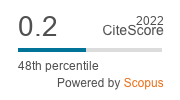The Enemy Other: Discourse of Evil in William Shakespeare’s "The Tempest"
DOI:
https://doi.org/10.18778/2083-8530.25.07Keywords:
discourse of evil, William Shakespeare, deconstruction, post-colonial criticism, European renaissanceAbstract
Caliban, the ‘enemy Other’ of William Shakespeare’s The Tempest, is a character that allows further investigations of the colonial ideology in its earliest forms; locating ‘evil’ forces outside the continent of Europe and the White race. Caliban, the only non-European character, is typified as the autocratic antagonist of the play whose evil intentions and actions cannot be redeemed. Against such representation, the essay argues that the villainous discourse attributed to Caliban is informed by Renaissance theological doctrines escorted by an emergent colonial ideology. It argues that, at a semantic level, the employment of the concept of ‘evil’ often serves as an intensifier to denounce wrongful actions. At a moral level, however the term is often contested on the basis that it involves unwarranted metaphysical commitments to dark spirits necessitating the presence of harmful supernatural creatures. To attribute the concept to human beings is therefore essentially problematic and dismissive since it lacks the explanatory power of why certain people commit villainous actions rather than others. Hence, the epistemological aporia of Caliban’s ‘evil’ myth reveals an inevitable paradox, which concurrently requires locating Caliban both as a human and unhuman figure. Drawing on a deconstructionist approach, the essay puts the concept of ‘evil’ under erasure, hence, argues that Caliban’s evilness is a mere production of rhetoric and discourse rather than a reality in itself. This review contributes to the intersecting areas of discourse, representations, and rhetoric of evil within the spectrum of postcolonial studies.
Downloads
References
Baudrillard, Jean. Simulacra and Simulation. Ann Arbor, Michigan: University of Michigan Press, 2012.
Google Scholar
Begüm, Tuğlu. “Identities in The Tempest, Tempests in Identities.” International Journal of English and Literature 7.5 (2016): 62-68 https://doi.org/10.5897/IJEL
Google Scholar
Bhabha, Homi. The location of culture. Oxfordshire, England: Routledge, 1994.
Google Scholar
Bhoraskar, Ravi, and Sudha Shastri. “A postcolonial View of The Tempest and its Afterlives.” 2012 https://ravi.bhoraskar.com/papers/tempest-report.pdf Accessed 2 May 2020.
Google Scholar
Calder, Todd. The Concept of Evil. The Stanford Encyclopaedia of Philosophy. Ed. Edward N. Zalta, 2018 https://plato.stanford.edu/archives/fall2018/entries/concept-evil/ Accessed 10 May 2020.
Google Scholar
Choudhury, Bibhash. Reading postcolonial theory: Key texts in context. India: Routledge, 2016.
Google Scholar
Cole, Phillip. The Myth of Evil: Demonizing the Enemy. Edinburgh: Edinburgh University Press, 2006.
Google Scholar
Derrida, Jacques. Writing and Difference. Chicago: The University of Chicago Press, 2001.
Google Scholar
Edelheit, Amos. Scholastic Florence: Moral Psychology in the Quattrocento. Leiden, Netherlands: Brill, 2014.
Google Scholar
Fallwell, Lynne, and Keira V. Williams. Gender and the Representation of Evil. New York: Routledge, 2016.
Google Scholar
Foucault, Michel. Orders of Discourse. Social Science Information 10.2 (1971): 7-30.
Google Scholar
Greenblatt, Stephen, and Stephen Jay Greenblatt, eds. Representing the English Renaissance. Oakland, California: University of California Press, 1988.
Google Scholar
Hay, Simon. The Colonial Discourse of Robert Browning’s’ Caliban: Subversive Articulations or Method of Containment. Deep South 2.3 (1996) https://deepsouthmag.com/ Accessed 3 June 2020.
Google Scholar
Horne, Brian. On the representation of Evil in Modern Literature. New Blackfriars 84.3 (2003): 30-42 https://onlinelibrary.wiley.com/doi/epdf/10.1111/j.1741-2005.2003.tb06485.x/ Accessed 3 June 2020.
Google Scholar
Hulme, Peter, William Sherman, and William Howard Sherman, eds. The Tempest and Its Travels. London: Reaktion Books, 2000.
Google Scholar
Irvine, Martin. Media Theory and Semiotics: Key Terms and Concepts http://artsites.ucsc.edu/faculty/cwaters/Irvine.pdf/ Accessed 2 February 2020.
Google Scholar
Kenny, Farris. Agata Szczezak-Brewer’s Student’s Blog about Literature, Culture, and Theory http://literaryandculturaltheory2010.blogspot.com/2010/04/post-colonialanalysis-of-shakespeares.html/ Accessed 2 May 2020.
Google Scholar
McLeod, John. Beginning Postcolonialism. Oxford: Oxford University Press, 2013.
Google Scholar
Petryk, T. Concept Evil in Channelling-Discourse. Philological Sciences 9.2 (2018): 151-154.
Google Scholar
Phillips, Christina. Leila Aboulela’s The Translator: reading Islam in the West. Wasafiri 27.1 (2012): 66-72.
Google Scholar
Poulard, Étienne. Shakespeare’s Politics of Invisibility: Power and Ideology in The Tempest. International Journal of Žižek Studies 4,1 (2016): 1-21.
Google Scholar
Rod, Marsh. Lecture on Ariel (1900) and Calibán (1971), (Lecture, University of Cambridge, May 14, 2014 https://issuu.com/andrea_donn/docs/lecture_on_ariel_y_caliban.docx/ Accessed 26 August 2020.
Google Scholar
Rustin, Michael. Psychoanalysis, Racism and Anti-racism. The Good Society and the Inner World, 37.2 (1991): 57-84 https://doi.org/10.1177/0306396801424002
Google Scholar
Said, Edward. Orientalism. New York City: Vintage, 1978.
Google Scholar
Sebeok, Thomas Albert. Signs: An Introduction to Semiotics. Toronto, Ontario: University of Toronto Press, 2001.
Google Scholar
Shakespeare, William. The Tempest. Ed. Laurie Skiba. Minnesota: EMC Corporation, 1998.
Google Scholar
Skiba, Laurie. The Historical Context of The Tempest. Minnesota: EMC Corporation, 1998.
Google Scholar
Spurr, David. The Rhetoric of Empire: Colonial Discourse in Journalism, Travel Writing, and Imperial Administration. Durham, North Carolina: Duke University Press, 1993.
Google Scholar
Veeser, Harold, ed. The New Historicism. Oxfordshire, England: Routledge, 2013.
Google Scholar
Williams, Deann. Prospero’s Girls. Borrowers and Lenders, 9.1 (2014) http://www.borrowers.uga.edu/1382/show/ Accessed 4 May 2020.
Google Scholar
Downloads
Published
Versions
- 2023-12-20 (2)
- 2022-12-14 (1)
How to Cite
Issue
Section
License

This work is licensed under a Creative Commons Attribution-NonCommercial-NoDerivatives 4.0 International License.












